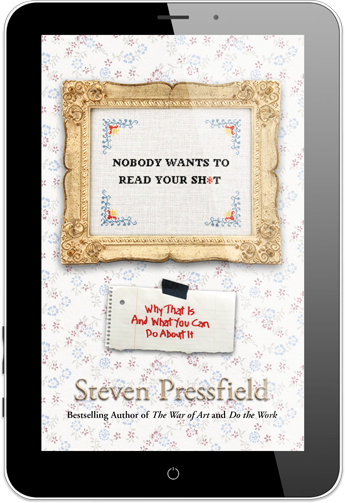Paul Whybrow
Full Member
I've read about 20 writing handbooks in the last year. One of the best is The War of Art by Steven Pressfield. It's not a writing guide as such, more a motivational boot camp nag into how to overcome obstacles in the creative process.

He really knows what he's talking about, from long and bruising experience:
Steven Pressfield - Wikipedia, the free encyclopedia
His website: Books | Steven Pressfield
Pressfield is closely allied with Shawn Coyne, who is his agent and quite a writing guru himself. His Story Grid method of writing a book is worth a look—it's cheaper as an ebook.
His website: Story Grid
Together they started a publishing company called Black Irish, and a sequel to The War of Art has just come out. It's called Nobody Wants to Read Your Sh*t and is available as a free download. This may be a time limited offer, so download it now. I read it in a couple of hours and found much of value.
Nobody Wants to Read Your Sh*t - Download | Black Irish Books


He really knows what he's talking about, from long and bruising experience:
Steven Pressfield - Wikipedia, the free encyclopedia
His website: Books | Steven Pressfield
Pressfield is closely allied with Shawn Coyne, who is his agent and quite a writing guru himself. His Story Grid method of writing a book is worth a look—it's cheaper as an ebook.
His website: Story Grid
Together they started a publishing company called Black Irish, and a sequel to The War of Art has just come out. It's called Nobody Wants to Read Your Sh*t and is available as a free download. This may be a time limited offer, so download it now. I read it in a couple of hours and found much of value.
Nobody Wants to Read Your Sh*t - Download | Black Irish Books

